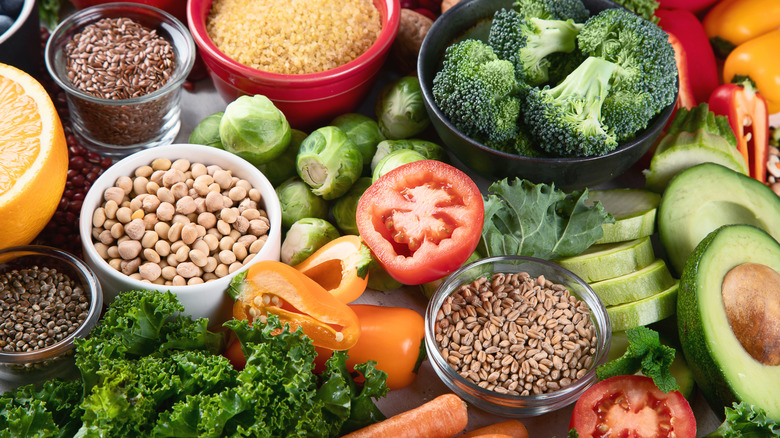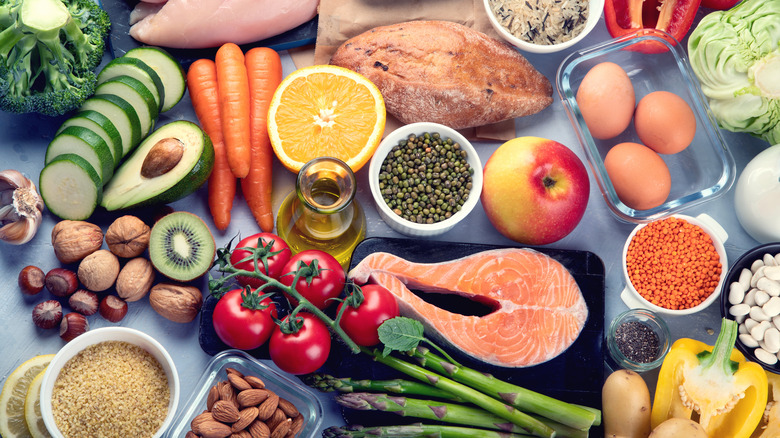New Study Reveals Eating More Of These Foods Can Add Years To Your Lifespan
We all know that we should eat our vegetables, but sometimes committing to a diet overhaul is difficult. Going beyond the knowledge that eating healthy makes you feel better, though, taking a look at exactly how many years a diet change can potentially add to your life? That specific answer might make it easier to finish off that side of broccoli.
The results from a recent study published in PLOS Medicine found that making some healthy changes to our diets can increase life expectancy and quality. Data collected by the Global Burden of Disease study in 2019 indicates that swapping traditional western diets that consist of more red meats, sugar, and refined grains for an optimal diet based on whole grains, legumes, fruit, fish, and vegetables can increase life expectancy by 10 years for women and 13 years for men — if they make the change starting at age 20. If you celebrated that birthday many moons ago, you can still increase your life expectancy by at least eight years if you improve your diet at age 60.
The study revealed that legumes, such as beans, peas, and lentils offer the most bang for your buck, increasing women's lifespan by two years and men's by 2.3 years. Everyday Health touts the health benefits and versatility of legumes as they are full of fiber, protein, and antioxidants and are easily incorporated into many dishes. Further, deciding to switch to a healthier diet can also benefit the consumer beyond increasing their life expectancy.
Converting to an optimal diet has many benefits
If you want to live a longer life, you probably also want to feel good while you're doing it. In addition to increasing life expectancy for men and women of all ages, sustaining an optimal diet can also improve our quality of life by decreasing our risk of developing chronic diseases.
According to CNN Health, a CDC study shows that many Americans struggle to eat a sufficient amount of fruits, vegetables, whole grains, nuts, seeds, and legumes. These foods are a great source of healthy fats, minerals, vitamins, and antioxidants that can decrease the likelihood of developing heart disease and some cancers associated with diets that are high in red meat, dairy, and processed grains.
People with an interest in improving their lifespan and health can easily do so by trying out the Mediterranean diet, which the Mayo Clinic defines as a way of eating that is mainly plant-based with a very moderate amount of seafood, poultry, and dairy. Even at 80 years old, a person switching to a plant-based diet can increase their life expectancy by 3.5 years while preventing heart disease and stroke. It seems that it is never too late to start benefiting from a healthy diet.

